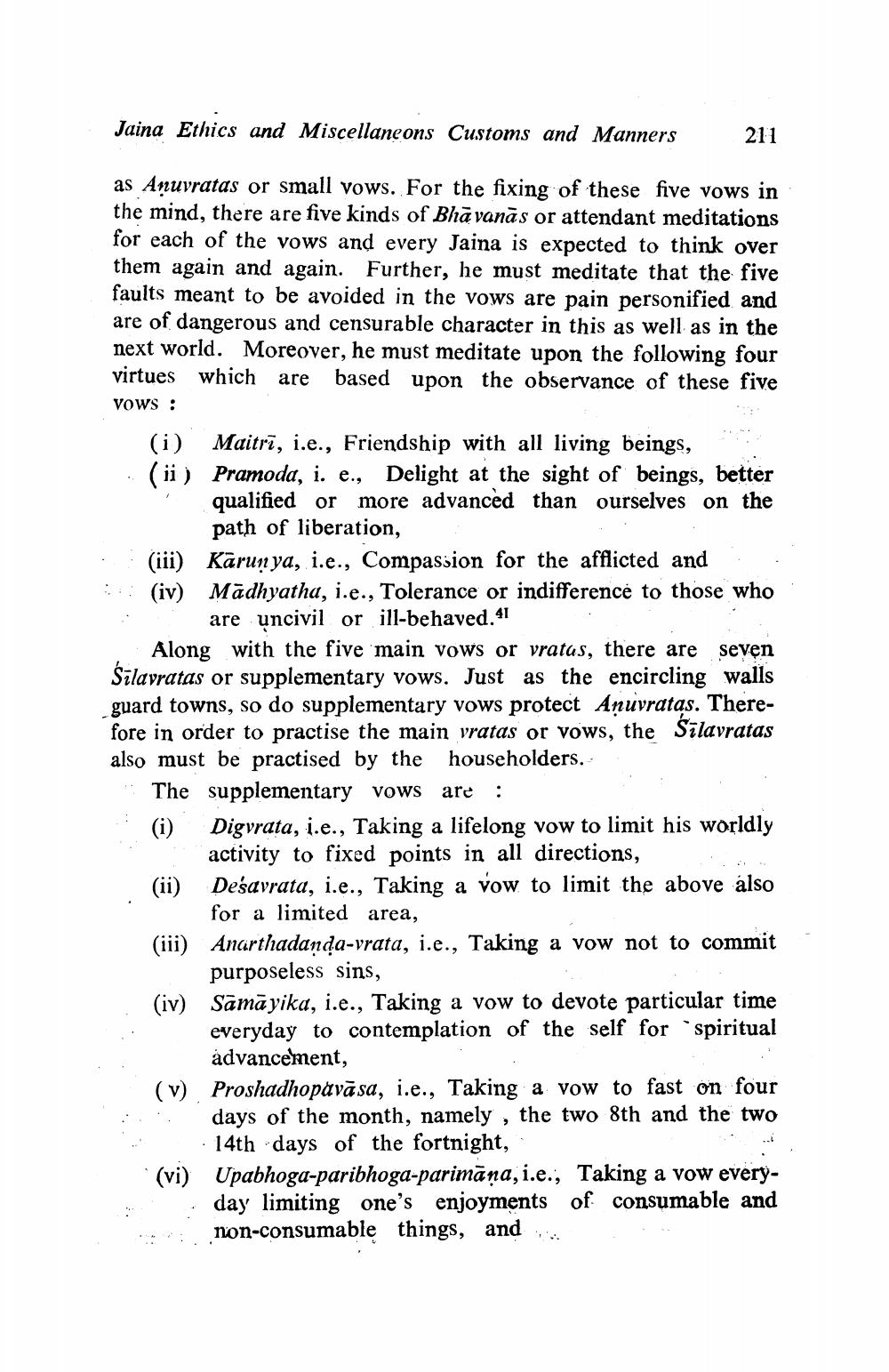________________
Jaina Ethics and Miscellaneons Customs and Manners
211
as Anuyratas or small vows. For the fixing of these five vows in the mind, there are five kinds of Bhā vanās or attendant meditations for each of the vows and every Jaina is expected to think over them again and again. Further, he must meditate that the five faults meant to be avoided in the vows are pain personified and are of dangerous and censurable character in this as well as in the next world. Moreover, he must meditate upon the following four virtues which are based upon the observance of these five Vows :
(i) Maitrī, i.e., Friendship with all living beings, . (ii) Pramoda, i. e., Delight at the sight of beings, better
qualified or more advanced than ourselves on the
path of liberation, (iii) Karunya, i.e., Compassion for the afflicted and . . 1. (iv) Mādhyatha, i.e., Tolerance or indifference to those who
are uncivil or ill-behaved. Along with the five main vows or vratus, there are seven Sīlavratas or supplementary vows. Just as the encircling walls guard towns, so do supplementary vows protect Aņuvratas. Therefore in order to practise the main vratas or vows, the Silavratas also must be practised by the householders. "The supplementary vows are :
Digvrata, i.e., Taking a lifelong vow to limit his worldly activity to fixed points in all directions, Deśavrata, i.e., Taking a vow to limit the above also for a limited area, Anarthadanda-vrata, i.e., Taking a vow not to commit purposeless sins, Sāmāyika, i.e., Taking a vow to devote particular time everyday to contemplation of the self for ‘spiritual
advancement, (v) Proshadhopavāsa, i.e., Taking a vow to fast on four
days of the month, namely, the two 8th and the two
14th days of the fortnight, (vi) Upabhoga-paribhoga-parimāna, i.e., Taking a vow every
day limiting one's enjoyments of consumable and non-consumable things, and




